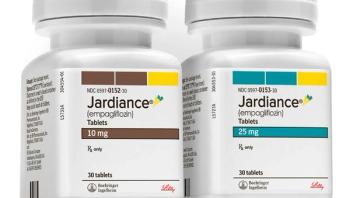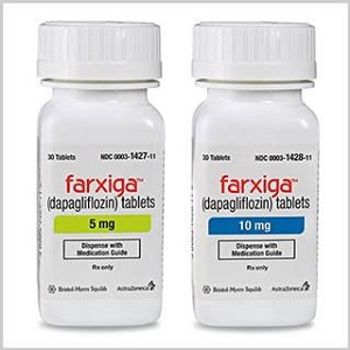
Cardiovascular outcomes trials have changed type 2 diabetes drug development and added to the knowledge base, but some think these giant studies make therapies too costly and discourage innovation.
Mary Caffrey is the Executive Editor for The American Journal of Managed Care® (AJMC®). She joined AJMC® in 2013 and is the primary staff editor for Evidence-Based Oncology, the multistakeholder publication that reaches 22,000+ oncology providers, policy makers and formulary decision makers. She is also part of the team that oversees speaker recruitment and panel preparations for AJMC®'s premier annual oncology meeting, Patient-Centered Oncology Care®. For more than a decade, Mary has covered ASCO, ASH, ACC and other leading scientific meetings for AJMC readers.
Mary has a BA in communications and philosophy from Loyola University New Orleans. You can connect with Mary on LinkedIn.

Cardiovascular outcomes trials have changed type 2 diabetes drug development and added to the knowledge base, but some think these giant studies make therapies too costly and discourage innovation.

A new session at the Academy for Managed Care Pharmacy Nexus 2018 allowed for sharing ideas that have recently been put into practice.

A life-saving therapy is challenging to administer and poses financial risks for patients and institutions alike. Speakers at the Academy of Managed Care Pharmacy Nexus 2018 address some approaches to paying for it while CMS develops long-term policies.

Program audits are the chief tool used to evaluate how well health plans deliver care to an ever-growing share of Medicare's 60 million beneficiaries.

The combination therapy lets patients take a single pill once a day for treatment, which leads to improved adherence. Results of the study were presented at the Academy of Managed Care Pharmacy Nexus 2018 in Orlando, Florida.

A major bill to curb opioid abuse and the Trump administration's blueprint to rein in drug prices highlighted a busy year in the legislative and regulatory arena for the Academy of Managed Care Pharmacy.

Express Scripts' Aimee Tharaldson, PharmD, gave her overview of the specialty pharmacy pipeline for 2019 and beyond at the Academy of Managed Care Pharmacy Nexus 2018 meeting in Orlando, Florida.

The breach comes as the Trump administration hopes to rely more heavily on professionals to assist consumers during open enrollment.

Researchers have created a database that shows how 409 different tumor cells respond to 122 therapies, which will allow clinical trials to proceed for this aggressive blood cancer.

Finding a place for value-based payment with the fast paced innovation in oncology.

The idea for putting drug prices in TV ads was part of the blueprint, American Patients First. The pharmaceutical industry opposes the plan on First Amendment grounds.

As CareMore Health touts success in keeping Medicaid patients out of the emergency department, a separate report shows lack of access to Medicaid keeps the poor in many states from seeking care.

The analysis of data from EMPA-REG OUTCOME arrives as the FDA weighs the future of these large trials.

The deal could lead to the transformation of CVS' drug stores into retail medical centers. The American Medical Association opposes the plan.

Research at the University of Washington is exploring the possibility of triggering one gene to take over the function of another with a common mutation that triggers acute lymphoblastic leukemia.

Patient preference should be considered because medications don't work if adherence is poor, the experts noted.

The dual inhibitor first blocks 2 kinases that are known to aid the growth of malignant B cells, and then it disrupts the microenvironment that supports tumor growth.

Pharmacy benefit managers (PBMs) will have to disclose some information about their compensation and relationships with payers.

The Institute for Value-Based Medicine travels to New York City to learn how technology and trust are key to making the leap to two-sided risk.

For 2017, New Jersey's largest insurer made particularly good progress in certain diabetes measures and in cancer screenings.

James P. Allison, PhD, and Tasuku Honjo, MD, PhD, led the basic science experiments that showed the potential of checkpoint inhibitors, creating a fourth pillar in the treatment of cancer.

POSTERS AT THE 2018 American Association of Diabetes Educators (AADE) Annual Conference covered updates on new therapies and technology, strategies to help patients overcome fear of using insulin, and innovations in diabetes self-management education and support. Following are a few snapshots of the research presented at AADE.

Loyola University Chicago and Loyola Medicine announced plans this week to develop their own chimeric antigen receptor T-cells that would have less toxic side effects.

Livongo’s technology is built around the idea that a person living with diabetes must make multiple decisions every day, and the cumulative effect of all those decisions drives outcomes.

A profile of a program that calls for residents in a rural area to become full partners in managing their type 2 diabetes, and in the process bring changes to their community.

Employers who have been disappointed in the past with wellness programs want to see evidence of patient engagement and how this translates into savings.

Advocates for keeping Medicare as it is were joined by a well-known pollster to discuss that voters are concerned about out-of-pocket costs, including what they pay for prescription drugs, as the 2018 midterm elections approach.

Heart failure hospitalization has been a target for accountable care organizations seeking to find ways to cut costs from the healthcare system. But it remains to be seen how many of the estimated 2 million patients would gain access to the device if it received an expanded indication and payer coverage.

Full results from the cardiovascular outcomes trial for dapagliflozin (Farxiga) will be presented at the American Heart Association annual meeting in November.

AARP and other groups reacted strongly to reports that the pharmaceutical industry was using efforts to combat the opioid crisis to roll back an agreement to close the coverage gap in Medicare Part D.

259 Prospect Plains Rd, Bldg H
Cranbury, NJ 08512
© 2025 MJH Life Sciences®
All rights reserved.
